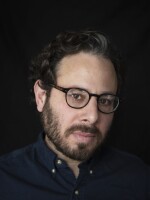STEVE INSKEEP, HOST:
As soon as today, a grand jury may decide on the case of Eric Garner. His death in New York caused an uproar over the summer. Video showed Garner placed in a chokehold by police. The New York Police Department has been quietly preparing for the grand jury's decision, and so have community activists in Garner's Staten Island neighborhood. They are all hoping to avoid a repeat of the violent scenes in Ferguson, Missouri. NPR's Joel Rose reports.
JOEL ROSE: Twice a week, Eric Garner's parents and other activists gather a few blocks from the Staten Island ferry terminal.
(SOUNDBITE OF PROTEST)
UNIDENTIFIED WOMAN: This is for who?
UNIDENTIFIED PROTESTERS: Eric Garner.
ROSE: Yesterday's vigil might be one of their last. The grand jury that's been considering the case is expected to reach a decision this week. Gwen Carr is Eric Gardner's mother. She says she wants justice for her son, but Carr also wants a peaceful reaction to the grand jury's decision.
GWEN CARR: I'm not going to get out here and be violent. I hope nobody else does either, but I can't speak for anybody else. You know, everybody, they're up in arms about this 'cause the video was there for the world to see.
ROSE: That cell phone video shows Eric Garner, who was black, being arrested for allegedly selling loose cigarettes in a park. He's placed in a chokehold, which is prohibited by NYPD policy, by a white police officer named Daniel Pantaleo and dragged to the ground.
(SOUNDBITE OF ARCHIVED RECORDING)
ERIC GARNER: I can't breathe. I can't breathe.
ROSE: Garner can be heard gasping, I can't breathe, in the video. The New York City medical examiner ruled his death a homicide. Now it's up to a grand jury to decide whether to charge Pantaleo and the other officers involved. The decision comes after rioting in Ferguson where another grand jury decided not to charge a white police officer who shot an unarmed black man. But activists in New York say these are two different cases and two very different communities.
CYNTHIA DAVIS: Staten Island is not Ferguson.
ROSE: Cynthia Davis heads the Staten Island chapter of Rev. Al Sharpton's National Action Network. She and other community leaders met Monday with New York's police leadership to talk about the grand jury's decision and what comes after it.
DAVIS: They want to make sure that the protest goes as smooth as possible - not to disrupt it.
ROSE: Davis says the NYPD coordinated closely with her group to organize a large and peaceful protest march in Staten Island in August. The NYPD is bracing for protests again after the grand jury's decision, says Commissioner William Bratton.
(SOUNDBITE OF ARCHIVED RECORDING)
WILLIAM BRATTON: Will they engage in some type of demonstration no matter which way the jury goes? Certainly. But I think that people get to have their voices heard without disturbance.
ROSE: Bratton says the protesters will get a certain amount of breathing room as long as they don't break any laws. Bobby Digi is a community activist from the North Shore of Staten Island. He says that breathing room could be important after the grand jury's decision.
BOBBY DIGI: There's some tension there, right? And we want to make sure that people can vent and express themselves, but where it doesn't get chaotic.
ROSE: Even local business owners don't seem particularly worried about a replay of Ferguson.
KARL REINA: Concerned? Yes. But nervous? No.
ROSE: Karl Reina owns Karl's Klipper, a restaurant and bar near the Staten Island ferry terminal. He decided not to open on the day of the big protest march in August.
REINA: As far as the previous Al Sharpton march where the whole town was walking on eggshells - and it turned out to be a little old nothing. And it went good. In hindsight, I could've and should've opened.
ROSE: Reina hopes it will be business as usual in Staten Island this week even after the grand jury's decision. Joel Rose, NPR News, New York. Transcript provided by NPR, Copyright NPR.


